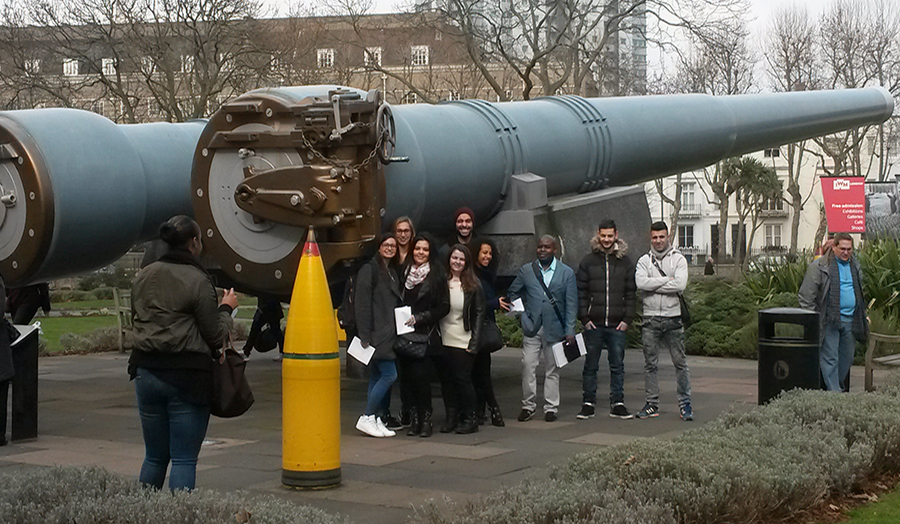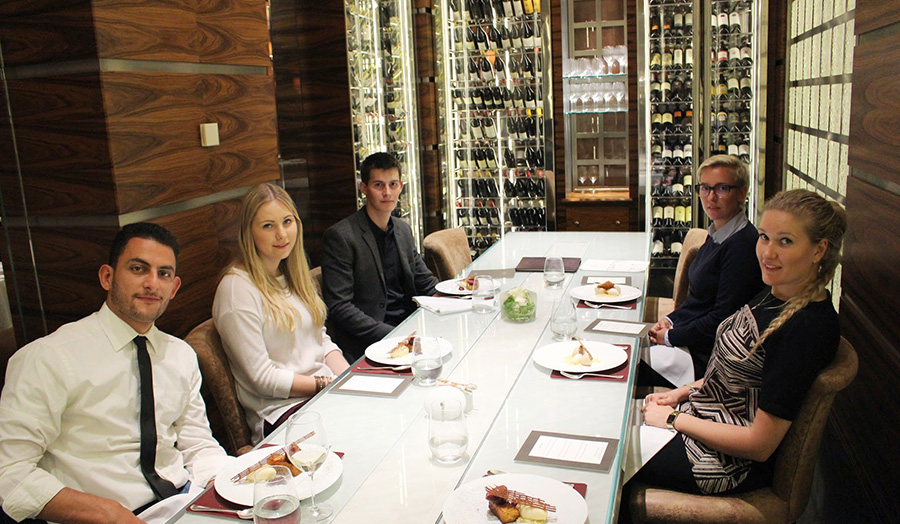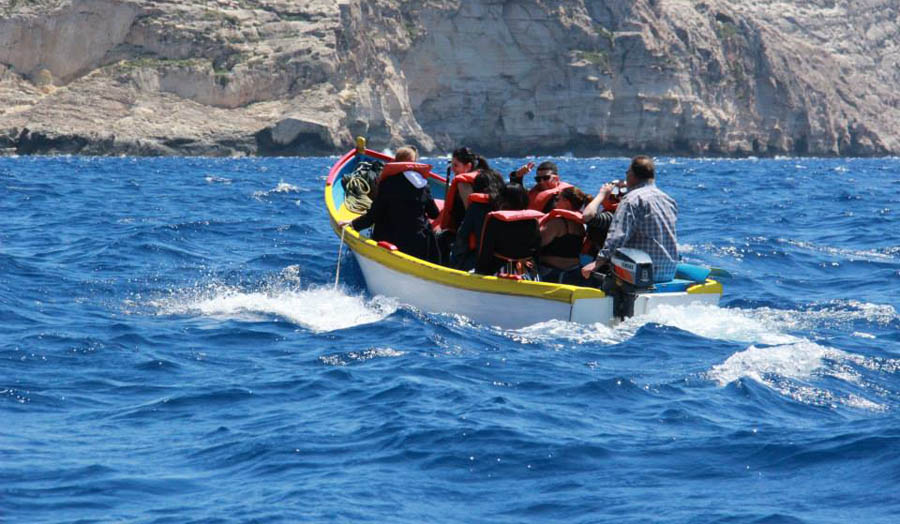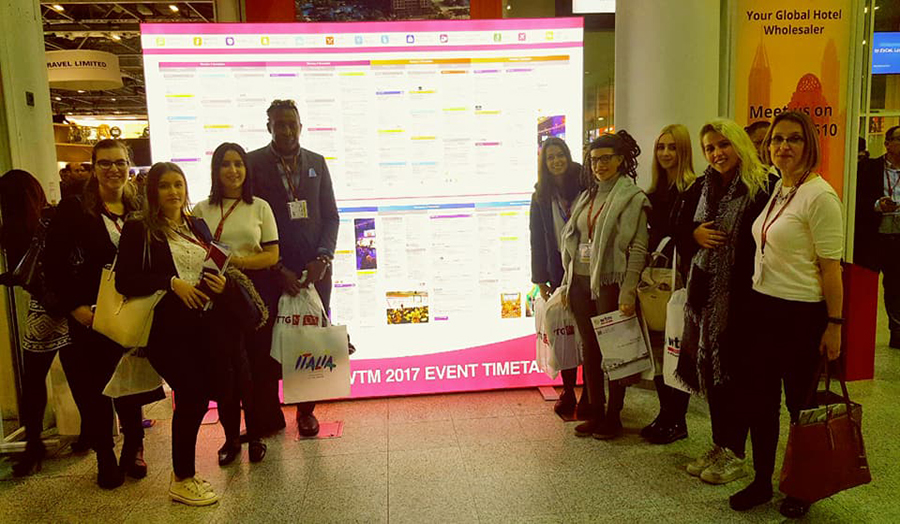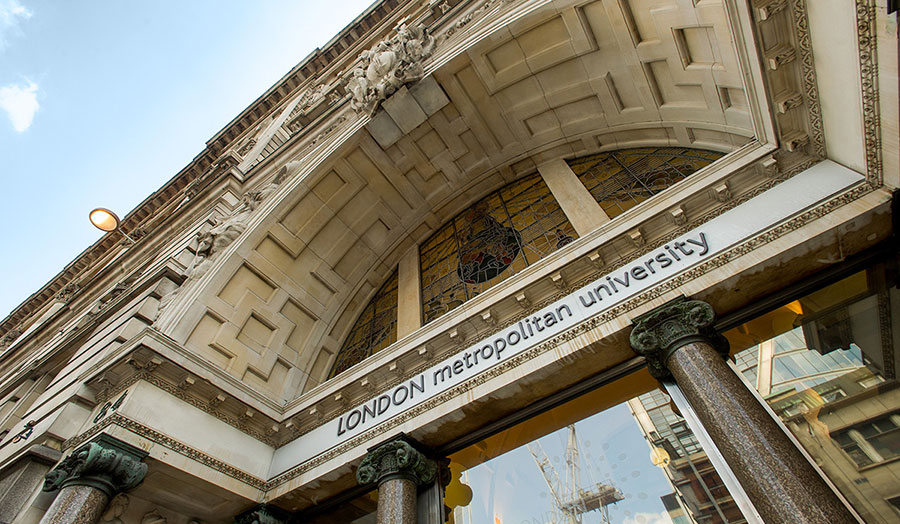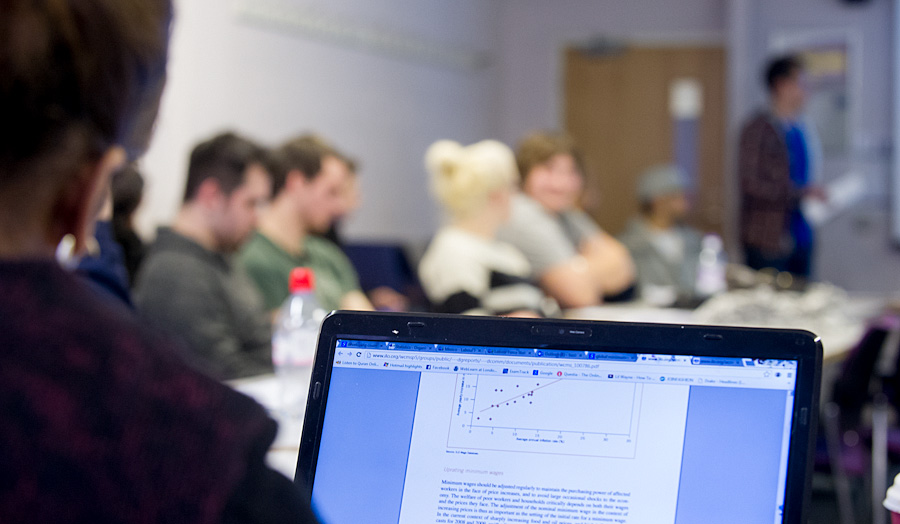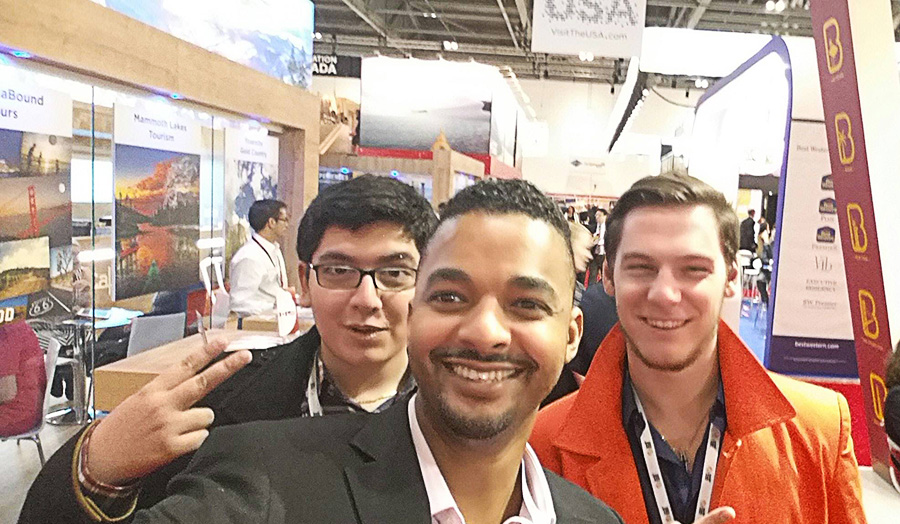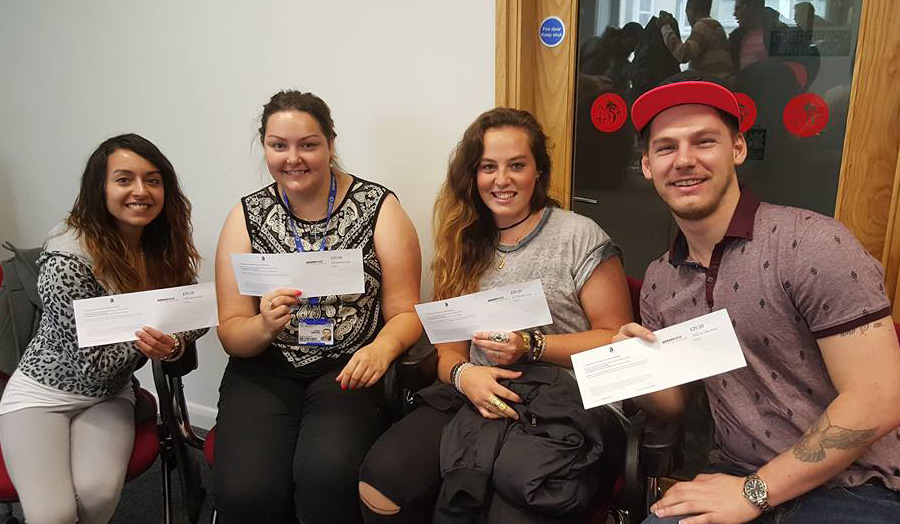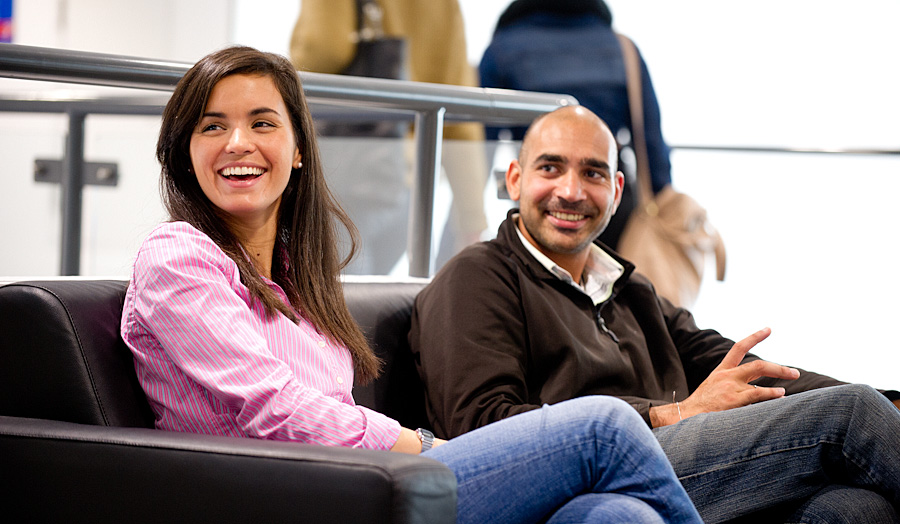Apply for this course
Please select when you would like to start:
If you're a UK applicant wanting to study full-time starting in September, you must apply via UCAS unless otherwise specified. If you're an international applicant wanting to study full-time, you can choose to apply via UCAS or directly to the University.
If you're applying for part-time study, you should apply directly to the University. If you require a Student visa, please be aware that you will not be able to study as a part-time student at undergraduate level.
Why study this course?
This is a top-up version of our Tourism and Travel Management BA degree. A top-up degree is the final year (Level 6) of an undergraduate degree course and is for those who have a foundation degree, Higher National Diploma or equivalent qualification, or those wishing to study the final degree of their degree in London.
This degree will bring you closer to a managerial career in the travel and tourism sector. You’ll investigate contemporary issues, including how to evaluate and mitigate risks, develop tourism marketing strategies and manage visitor attractions. You’ll benefit from close links with government and businesses via membership of the Tourism Management Institute, as well as insights from international projects by research centres such as the Association for Tourism and Leisure Education and Research (ATLAS).
Become a member of the TMI
Benefit from close links with government and businesses via membership of the Tourism Management Institute (TMI)
Join a course that never stops developing
This course is constantly evolving to include the most up-to-date issues and to prepare entrepreneurs for the challenging tourism business environment, including how to strategically manage operations even in a situation of crisis
Join our famous overseas tour
Our overseas study tour is the highlight of the course, providing an early example of field research techniques and addressing tourism marketing, management, planning and sustainability issues
Course modules
The modules listed below are for the academic year 2024/25 and represent the course modules at this time. Modules and module details (including, but not limited to, location and time) are subject to change over time.
Year modules
Leading Innovation
This module currently runs:autumn semester - Tuesday morning
autumn semester - Tuesday afternoon
autumn semester - Wednesday morning
autumn semester - Wednesday afternoon
(core, 15 credits)
This final-year core module “Leading Innovation” aims to enable students to study and apply in practice:
a range of leadership theories and techniques to critically evaluate and develop their own personal leadership style
a range of leadership theories and techniques to critically evaluate contemporary innovation practice, and organisations in a range of industries engaged with innovation practice
a range of innovation theories and techniques to critically evaluate contemporary innovation processes, and organisations in a range of industries that innovate
the synergies between leadership and innovation in a range of contexts
The Module will be based around two themes:
(i) Theme 1: Leadership, where they will study, reflect on, and use leadership theories and techniques to assess and develop their own personal leadership style. By doing this, students will be closely engaging with and evaluating classic and contemporary theories, and directly applying the ideas from these theories to their own experience and ambitions.
(ii) Theme 2: Innovation, where they will study, analyse, and evaluate the innovation processes of selected organisations and industries (by critiquing, for example, Case Studies), and how innovation is achieved and operates within the contemporary economy (by critiquing, for example, classic and contemporary examples). In addition, students will study the synergies between leadership and innovation, an emerging area in academic research and in practice. By doing this, students will be closely engaging with and evaluating innovation practice and performance, informed by the leadership theories and techniques covered in Theme 1.
Each theme will conclude with an assignment: Theme 1 will conclude with a team-based formative assignment, and Theme 2 will conclude with a pairs-based summative assignment. Once complete, this Module aims to enable students to understand a long-term timeline. Firstly, students will ‘look back’ and be exposed to classic and contemporary leadership texts, so they can critically evaluate and develop their own personal leadership style. Secondly, they will ‘look forward’ and critically evaluate how innovation can further emerge in the economy and society, and how contemporary and future organisations and industries can ensure sustainability through enhanced innovation, blended with enhanced organisational leadership.
Read full detailsService Excellence for Creative industries
This module currently runs:spring semester - Tuesday morning
(core, 15 credits)
‘Service Excellence for Creative Industries and Aviation’ investigates practices and strategies used in managing exceptional relationships between customers and service providers. Consistent delivery of high-quality service increases customer loyalty, businesses reputation and competitive advantage, hence the module focus lies in the exploration of all aspects of excellent service delivery.
The aim of the module is to provide students with understanding of the importance of service excellence, including reflection on their own professional conduct practices, and equip them with analytical ability to assess and improve service delivery.
Read full detailsStrategy in Tourism and Travel
This module currently runs:autumn semester - Friday morning
(core, 15 credits)
This module critically analyses the theories and models that guide the development of business strategy for the travel sector with reference to current issues and case studies. Students will apply principles to practice through ‘live’ examples, for example strategies of start-up airlines entering scheduled routes.
The aim of the module is to apply theories and models of sustainable competitive advantage to the travel sector with particular reference to liberalization of travel markets, and continuing barriers to market entry. It also aims to examine the significance of organizational structure and people management for business strategy in the travel sector.
Read full detailsTourism Destination Management
This module currently runs:spring semester - Monday afternoon
(core, 15 credits)
‘Tourism Destination Management’ guides students through principles of tourism destinations management, opening prospective career pathway into planning and developing tourism destination’s portfolio. Realistic understanding of obstacles facing destinations that seek to establish or improve destination product and image will be explored critically with reference to current issues and case studies from range of destination types: urban and rural, led by events, culture, business or niche tourism products. During the course of the module, students apply principles to practice through ‘live’ examples, advising a particular British destination on improving its competitive advantage.
As core module for Tourism and Events pathway, it aims to utilise links with Tourism Management Institute and develop graduates able to meet industry needs and pursue career in this, mostly public, sector of tourism industry.
Read full detailsConsultancy Project
This module currently runs:all year (September start) - Monday morning
all year (September start) - Monday afternoon
all year (September start) - Tuesday afternoon
all year (September start) - Tuesday morning
all year (September start) - Wednesday morning
(alternative core, 30 credits)
The Professional Consultancy / Project is a capstone module in which students will be required to undertake a business project aimed at enhancing their employability as well as providing a platform for further professional development.
This module requires students to undertake and write up an individual project that gives them the opportunity to not only consolidate their learning on the programme, but also to clearly apply their learning in a real-world context. Furthermore, it will provide students with the opportunity to showcase their professional competences built throughout the programme.
If in employment students may choose to use a work-based consultancy project (subject to agreement from their employer). Alternatively, they may choose a project which is research-based.
Students will also be required to present their project via an on-line presentation or podcast. This module gives them the opportunity to demonstrate their professional credibility and to use their academic, business and technical skills in a professional context.
Professional Consultancy Project aims to:
1 Demonstrate the ability to utilise and contextualise knowledge by applying analytical skills to a business situation or problem
2 Demonstrate the ability to assemble a coherent and a sustained piece of writing that evaluates a business/project problem/solution
3 Create an opportunity to further develop a range of skills associated with research including analysis, interpretation, written expression, formal report writing, and self-managed study
4 Engage students on a complex, integrated activity that will consolidate and integrate previous skills and learning
5 Provide students with a ‘showcase’ opportunity that allows them to demonstrate their ability to apply the knowledge and skills acquired throughout the course to a significant and specialised task
Dissertation
This module currently runs:all year (September start) - Tuesday morning
all year (September start) - Tuesday afternoon
(alternative core, 30 credits)
This module aims to enable students to complete a research focused dissertation on a chosen topic or issue appropriate to their undergraduate degree. Students are required to reflect on relevant research questions, theoretical concepts/hypotheses, prior literature, ethical approaches, research methodologies and data analyses in an independent and disciplined manner. Students are expected to develop an in-depth understanding of their chosen research topics, research methods/approaches and the ability to appropriately seek out data samples required for research in a selected topic. The module aims to develop analytical, critical thinking, referencing and time management skills in independently undertaking and reporting on a research project.
Read full detailsBrand Management
This module currently runs:spring semester - Monday morning
(option, 15 credits)
This module provides a comprehensive and up-to-date understanding on brands, brand equity and strategic brand management. It outlines the concepts and framework of branding, which are crucial in designing, implementing marketing campaigns as well as activities to build, measure and manage brand equity. It provides students with the tools and techniques to improve long-term profitability via creating effective brand strategies.
Aims of the module:
- Explore the role of branding from a corporate and consumer perspective.
- Examine the theory of branding.
- Develop students' understanding of the role played by marketing communications in the building and maintenance of brands.
- Develop students’ researching and analysing skills.
- Develop students’ critical writing, application of knowledge and decision-making skills.
Conference Management
This module currently runs:spring semester - Tuesday afternoon
(option, 15 credits)
The principal aim of this module is to provide students with an insight into and appreciation of how conferences industry work in terms how these events are designed and managed in a range of sectors as well as in terms of their broader complexities including the role these events plays within the wider business tourism and events sectors.
To this end the module seeks to explore both the supply and demand sides of the events including examining the role of organisers, venues, facilities and the range of activities, which take place before, during and after a conference as well as the importance of technology in conferencing experiences.
The module also examines the purpose of these events, their scope within the events and business tourism sector as well as discussing issues and trends that impact the way these events are hosted and managed.
The module overall aims are:
- To provide an in-depth critical overview of the conference sector of the events industry, its purpose, structure and and role within the wider events/tourism contexts
- To examine current issues and trends that impact the sector and encourage students to explore these to develop ideas and solutions.
- To develop an understanding of the organisational and managerial skills needed to create, design and operate conferences (and other corporate events and similar).
Event Sponsorship and Fundraising
This module currently runs:autumn semester - Friday afternoon
(option, 15 credits)
The module examines various marketing and funding practices used in the events industry and the role events can play in the marketing of other organisations, products and services. It explores the relevance of sponsorship in events marketing and its strategic use in marketing communications and branding. It also considers both the use of events as part of organisations’ fundraising efforts and looks at ways in which events can secure funds and support from a range of stakeholders.
Building on students’ existing knowledge and understanding of marketing and marketing communication concepts and theories gained previously on the Course (L4 and L5) the module will explore the principles and practice of sponsorship and fundraising in an event context.
The module aims are:
- Examine the nature, role and application of sponsorship and fundraising in the events industry and the role events play in sponsorship and fundraising strategies for various organisations in sectors including commercial, cultural and not for profit.
- To develop student’s in-depth understanding of current sponsorship and fund-raising theories and practices and the ability to apply these in an events context
- To provide students with the theoretical knowledge as well as practical skills necessary to develop and market sponsorship ready events
- To explore ways to secure financial/marketing support for events from partners and other stakeholders
- To develop students’ competences that are relevant to industry practice including research, applied analysis, critical thinking, problem solving and communication.
Global Marketing and Sales in the Digital Age
This module currently runs:autumn semester - Wednesday afternoon
(option, 15 credits)
Marketing is an essential component of any organisation regardless of size and has application globally, helping an organisation to retain and recruit news customers and increase the scale of a business.
Marketing is focused on the customer and the value of the product offering to stimulate demand, while sales activities are designed to encourage customer purchase. Both functions need to be integrated within an organisation to improve business performance.
Global marketing helps an organisation to find and develop new market opportunities while maintaining its domestic market(s.)
This module is intended to allow students to focus and explore the key components and nature of marketing and sales in a global market.
The global events of 2019 demonstrate the key linkages and interdependence of markets and demonstrate the importance of designing, distribution and selling products/ services in markets around the world, while maintaining a home market.
The module aims to:
- Provide an understanding of the role and importance of marketing and sales in a global setting.
- Explore a range of strategic choices available to organisations when seeking to expand globally.
- Provide an overview of marketing management in the ‘digital age’
- Explore the relationship and interdependence of marketing and sales
- Examine the impact of communication including digital applications to support product/service delivery in a global market.
Social Marketing
This module currently runs:autumn semester - Wednesday morning
autumn semester - Wednesday afternoon
autumn semester - Thursday morning
autumn semester - Thursday afternoon
(option, 15 credits)
This module aims to introduce the students to a developing specialist new field associated with marketing. It provides the students with the opportunity to build on their knowledge about marketing to apply it to situations where the aim is to help address social problems. Students will learn how this developing new science makes use of several disciplines, in addition to marketing, to help improve the welfare of our societies. This field has been successfully applied to many social ills ranging from obesity, drinking and driving to discrimination and domestic violence.
Students will be first introduced to the history and concepts of social marketing and shown the procedures used by social marketers to address social problems. The students will be encouraged to develop their critical as well as applied abilities during their studies.
By the end of the module the students will not only be able to appreciate the benefits of social marketing but also learn very useful skills about how to apply it. The knowledge and skills of this module will combine with previous skills achieved by students in the course, to enable them to understand and apply their marketing skills to both commercial as well as social situations. It will also help develop a socially responsible attitude as well as enable them to consider pursuing this professionally rewarding specialist area for their career.


